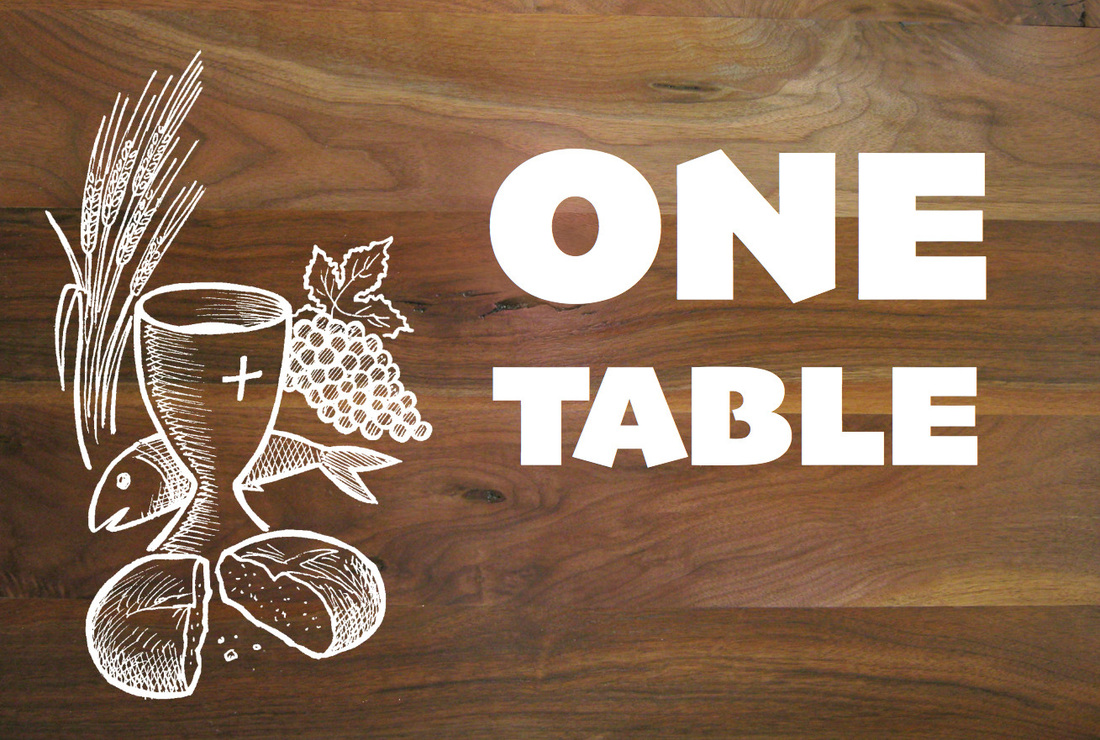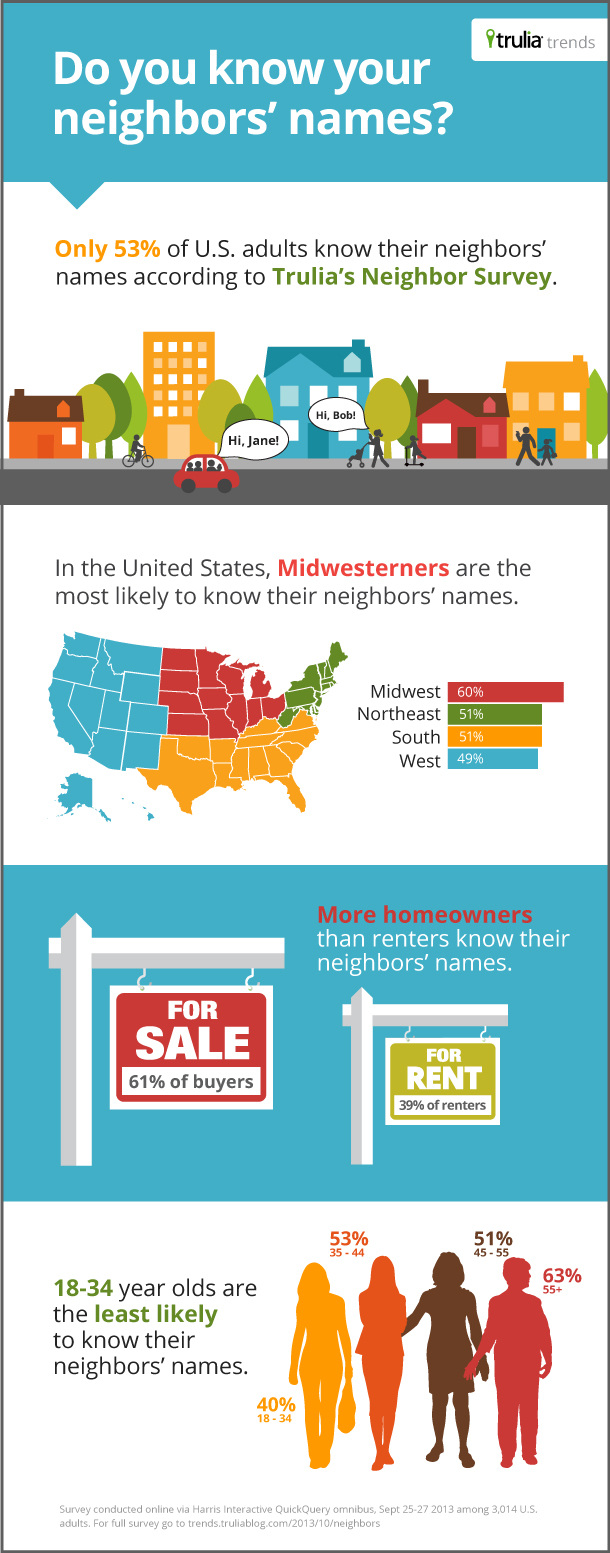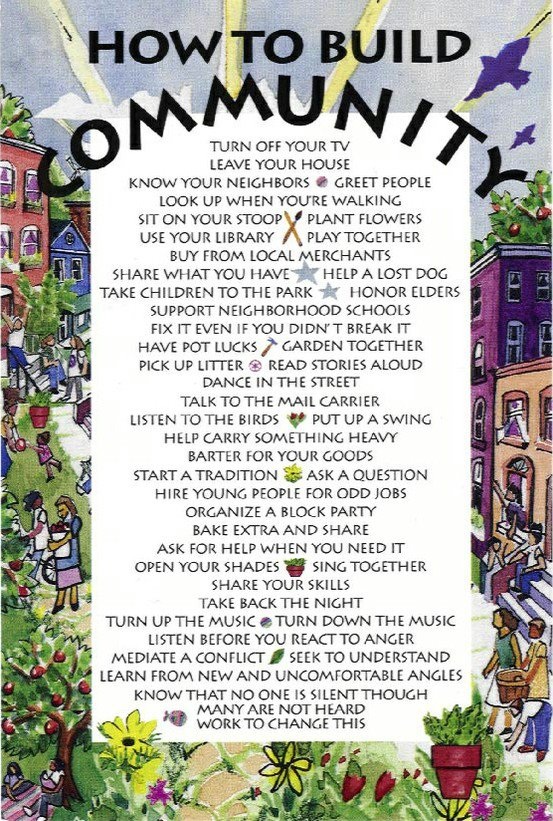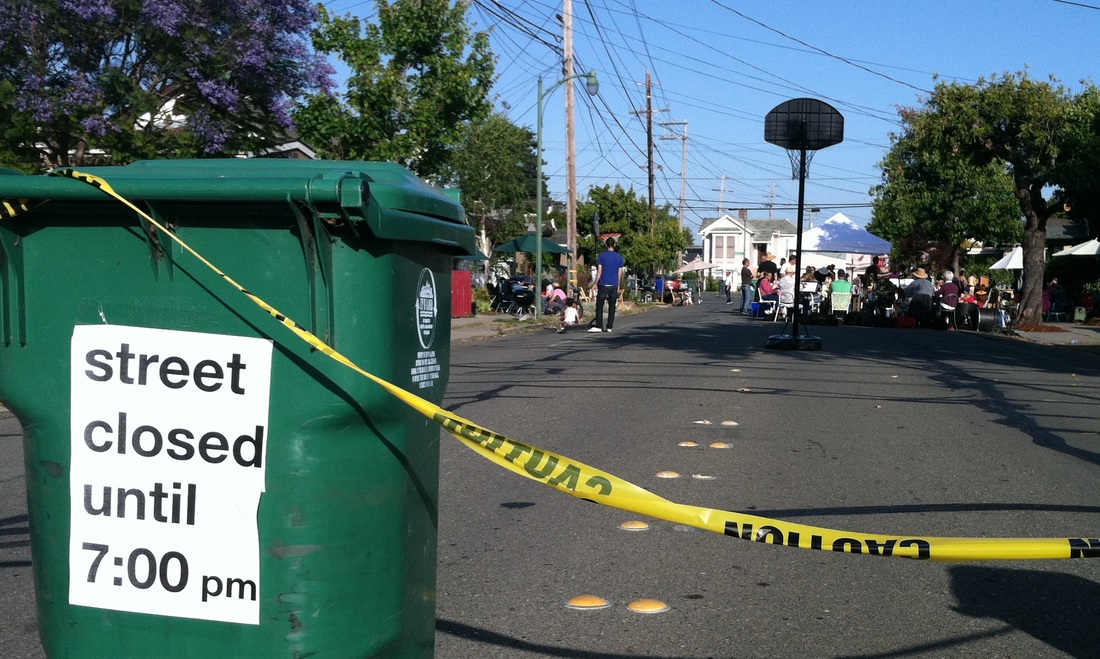Building CommunityChristians are called to build community by welcoming others into our Church, but we are also called to build community and promote the common good within our neighborhoods, cities, and the larger world.
A culture of individualism can make us isolated individuals who focus only on our own interests, but we are all social creatures who must love our neighbors and share a vision of how true community can transform the world. |
How Strong Is Our Neighborhood Community?
Bowling Alone
Robert D. Putnam, a professor of public policy at Harvard, wrote the book Bowling Alone: The Collapse and Revival of American Community in 2000. In it, he outlines the major social change that has happened in the United States since the 1960s:
Once we bowled in leagues, usually after work-but no longer. This seemingly small phenomenon symbolizes a social change.... Drawing on vast new data that reveal Americans' changing behavior, Putnam shows how we have become increasingly disconnected from one another and how social structures-whether they be the PTA, church, or political parties-have disintegrated. Until the publication of this groundbreaking work, no one had so deftly diagnosed the harm that these broken bonds have wreaked on our physical and civic health, nor had anyone exalted the fundamental power of these bonds in creating society that is happy, well educated, healthy, and safe. |
Do you Know Your Neighbor? |
Community over Individualism
Over and over again in the Scriptures, we hear that individualism-looking out for our own interests, no matter what-will never ultimately work for us or for our world. We need to overcome our differences and disagreements and gather as the body of Christ, focused on the God who unites us instead of human things that separate us. Amy Florian
The Mass: An Invitation to Enjoy It Individualism: The philosophy that places the interests of each person above the welfare of society. It is the subordination of the common good of many to the private good of the individual. In practice it is the sacrifice of social values to the personal desires of those who are most aggressive in demanding that society recognize their individual liberty. Modern Catholic Dictionary
Fr. John Hardon |
The table fellowship of Christians implies obligation. It is our daily bread that we eat, not my own. We share our bread. Thus we are firmly bound to one another not only in Spirit, but in our whole physical being. The one bread that is given to our fellowship links us together in a firm covenant. Now none dares go hungry as long as another has bread, and anyone who breaks this fellowship of the physical life also breaks the fellowship of the Spirit. Dietrich Bonhoeffer
In a society which values personal freedom and autonomy, it is easy to lose sight of our dependence on others as well as the responsibilities that we bear towards them. This emphasis on individualism has even affected the Church, giving rise to a form of piety which sometimes emphasizes our private relationship with God at the expense of our calling to be members of a redeemed community. Yet from the beginning, God saw that “it is not good for man to be alone” (Gen 2:18). We were created as social beings who find fulfillment only in love – for God and for our neighbor. If we are truly to gaze upon him who is the source of our joy, we need to do so as members of the people of God (cf. Spe Salvi, 14). If this seems counter-cultural, that is simply further evidence of the urgent need for a renewed evangelization of culture. |
How To Build Community
|
Text: Members of the Syracuse Cultural Workers Community • Artwork: Karen Kerney.
Find posters, postcards, bookmarks, t-shirts, etc., on their site. If you like this, you might also appreciate: |
Turn off your TV • Leave your house • Know your neighbors • Look up when you are walking • Greet people • Sit on your stoop • Plant flowers • Use your library • Play together • Buy from local merchants • Share what you have • Help a lost dog • Take children to the park • Garden together • Support neighborhood schools • Fix it even if you didn't break it • Have pot lucks • Honor elders • Pick up litter • Read stories aloud • Dance in the street • Talk to the mail carrier • Listen to the birds • Put up a swing • Help carry something heavy • Barter for your goods • Start a tradition • Ask a question • Hire young people for odd jobs • Organize a block party • Bake extra and share • Ask for help when you need it • Open your shades • Sing together • Share your skills • Take back the night • Turn up the music • Turn down the music • Listen before you react to anger • Mediate a conflict • Seek to understand • Learn from new and uncomfortable angles • Know that no one is silent though many are not heard • Work to change this
Pick one... or five... or ten to do this week! |
Catholic Social TeachingCatholic social teaching is often called the Catholic Church's "best kept secret." Living as a disciple means treating our neighbors as ourselves, both in individual interactions, as well as through how our society operates. The Church's social teaching gives us solid principles to live and organize by.
Core Principles
|
|
Action Steps
Here are some ideas for how you can live out this message in your life this week.
Question of the WeekHow is the Eucharist calling you to bring people together in your neighborhood and surrounding community?
|
Take Action This Week
Share This Page!Share this page with family members or friends you think would appreciate it.
|
Get Updates |
Feedback |




